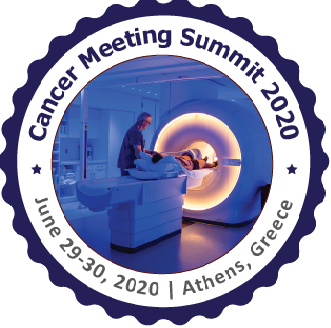
Dr. Juan Ariel Jara Guerrero
Universidad Complutense de Madrid, Spain
Title: Iron in the Oncogenesis: Its role in Cancer Progression and de Novo Cancer Initiation in Humans How the Free Iron worse the Insulin Resistance
Biography
Biography: Dr. Juan Ariel Jara Guerrero
Abstract
Iron is physiologically essential for life but biochemically dangerous. Chronic accumulation of iron causes pantropic organ damage and excess body iron play an important role in carcinogenesis, coronary artery disease, neurodegenerative disease, stroke. and inflammatory disorders. Iron is very slowly excreted from humans once it is absorbed into the body.
The significance of iron excess has been markedly underestimated, despite the fact that iron overloading disorders are as common place in the US white population (Conrad, 2002).
Iron-overload and catalytic iron promotes activation of oxidative responsive transcription factors and pro-inflammatory cytokines that increase cancer extension and aggravate them.
There is accumulative evidence for iron as a carcinogenic metal in epidemiological, clinical, animal, and cell culture studies. The role of iron in various cancers, such as colorectal and liver cancer was demonstrated. Recent advancements on the molecular mechanisms of iron carcinogenesis evolved the Insulin-resistance generation and promotion, fisiopatologic condition that is not only permissive, but may be generated cancer and promoting it. Unlike other nutritional metals, iron is highly conserved: toxicity due to excess iron can occur either acutely after a single dose or chronically due to excessive accumulation in the body from diet. In vivo studies have demonstrated that an iron deficiency induced by either feeding a low iron diet injecting the iron chelator deferoxamine mesylate decreases tumor growth (Wang F, Elliott RL, Head JF: Inhibitory effect of deferoxamine mesylate and low iron diet on the 13762NF rat mammary adenocarcinoma Anticancer Res. 1999 Jan-Feb;19(1A):445-50). Iron supplementation has at times proven ineffective and even detrimental to health (Dao, 2013).
Thus, iron excess may mediate the increased cancer risk associated with insulin resistance and heme-rich diets, and subjects who are insulin resistant can minimize any health risk associated with iron overload by avoiding heme-rich flesh foods and donating blood regularly (McCarty, 2003). The energy that sustains cancer cells derived preferentially from glycolysis (Matoba, 2006) depends on the gene p53 deficiency-iron induced. This nutrient is postulated to
4 contribute to the initiation of cancer in vivo (Nakano 2003, Tuomainen 2007, Rockfield, 2017), but iron overload initiates and sustain cancer development if chronic infection or insulin resistance conditions are present. Cancer cells require considerably more iron than normal cells. Since iron catalytic can induce driver point mutation and create fusion genes through chromosomal translocations, iron overload is one of the most important risk factors in human carcinogenesis (Toyokuni, 2014). Because free iron may play a catalytic role in “spontaneous” mutagenesis, moderately elevated iron stores increased overall risk for cáncer (McCarthy, 2003). Overactivity of inflammatory cytokines is responsible for anemia of inflammation in different chronic diseases and cancer (Vela, J Transl Med. 2018), and exogenous iron is ever detrimental in sikness. In US, a daily intake of dietary iron more than 18 mg is associated with an increased risk of cancer (Manous, 2014). Daily iron accumulation can be extremely toxic for the body and may cause carcinogenesis in the absence of iron chelation therapy (Isidori, Blood R, 2018, Wang, 2018, rev)

